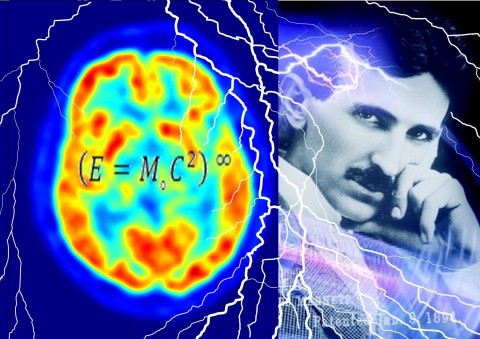Perthblog
Can we unify traditional and behavioral economics?

So active investing is dead. Even the investment literati have finally figured that one out even though the writing has been on the wall for quite some time. I’ve been heralding the issue (“An Inconvenient Truth - Alpha Financial Styles Beget Ginormous Returns” and “Less Algebra More Fudge Brownie - What Will Managed Investing 2.0 Look Like?”). So I can honestly say this blog has been well ahead of the curve. So what now?
Well it's clear now that “Modern Economics Doesn’t Work?” another of my early posts. Somehow we need to conceptualize and rework the whole discipline. Traditional economics is based on the now-outmoded idea that people always act rationally. Behavioral economics drops that approach to accept that often people make irrational decisions. Is there some way to meld the two? Is there a way to build a new grand unified theory of economics (GUTE), kind of like physics has been aiming for (unsuccessfully so far) for many years?
There are definitely some thinkers moving in that direction (see “A grand unified theory of behavioral economics?”). But we’re not there yet since behavioral economics and finance are still immature and haven’t solved many of the problems they need to be taken seriously (see my post “Behavioral Economics & Finance Need a Killer App (ahem)”).
We can get some inkling of what a GUTE might look like by checking out string theory the putative GUT for physics. The good news is that string theory does a good job of integrating all the various integrated theories into physics, including especially gravitation. The bad news is that it has no unique solutions and there are no ways to validate it experimentally yet.
But what string theory does show is that if you have a good unifying principle, it can go a long way. In string theory the unifying principle is that of vibrations. All particles and waves can be reduced to the perspective that they are all a piece of string that vibrates at different frequencies. With that you can build a not-bad theory.
Is there something like that in economics? Not so far, but here’s my try. Ever hear of mirror neurons? They are neurons whose function seems to be to figure out how you are reacting to me, at the neuronal level. Thy allow us to assess the actions, intentions and emotions of others.
Mirror neurons were first identified in monkeys. Now we know humans have them too. They are essential to social interaction. It’s now becoming clear that they are probably connected to our theory of mind. Without them, the idea is that we wouldn’t have one. Mirror neurons allow us to simulate how others are reacting or will react to us and to others.
Mirror neurons let us figure out how someone views us, and how we see their view of us and how they see how we view them, and so on. It's recursive. Essentially the mirror neurons can go as far as we have the cognitive capacity to deal with these recursive reflections. This stream of reflections is a system unto itself. Doesn’t it sound like it’s what causes relationships?
The mirror neurons can keep on reflecting reflections, just like in a funfair mirror house. Possibly as deep as several recursive reflections. This would vary drastically between different people. Could you develop a reflectance model that would simulate the extent to which people, groups, associations and whole countries tend to hew to different beliefs, actions and trends, including economic trends? Could that in turn explain the spread of economic phenomena, including consumer trends and actions, even economic bubbles? That would change the current conception of mirror neurons from being a social to include being an economic phenomenon
Could this be the origin of Keynes’ animal spirits? Could these recursive reflections occupy a role similar to that of vibrations in string theory? Could these reflections be built up into a theory that covers all interactions, including economic interactions? Rational and irrational?
Physicists have recently discovered the long-suspected particle called the Higgs boson. This particle is what gives all other subatomic particles their mass and also explains why they act on each other via the Higgs field.
Could each mirror neuron reflection be the Higgs boson of the mind that actually creates consciousness, the cognitive equivalent of mass? Could this explain why our decisions are both rational or otherwise, since these reflections just don’t care about the actual content of what they are mirroring? Because their job is to accurately mirror other neurons, not to explain what they are mirroring?
Of course this is all idle speculation. But since what we have doesn’t work anyway, maybe we should be encouraging this sort of thinking, with the idea of getting to a true grand unified theory of economics.
At the start of this blog I bemoaned the loss of Alpha. My gut feel is that a grand unified theory of economics would show us how to regain Alpha, based on an understanding of what truly makes it all tick. So it’s not just an academic thing. It really counts.
That’s because, Alpha is what makes humans go forward, not just materially but spiritually.
I, for one, wouldn’t want to give up on Alpha.
When you subscribe to the blog, we will send you an e-mail when there are new updates on the site so you wouldn't miss them.
